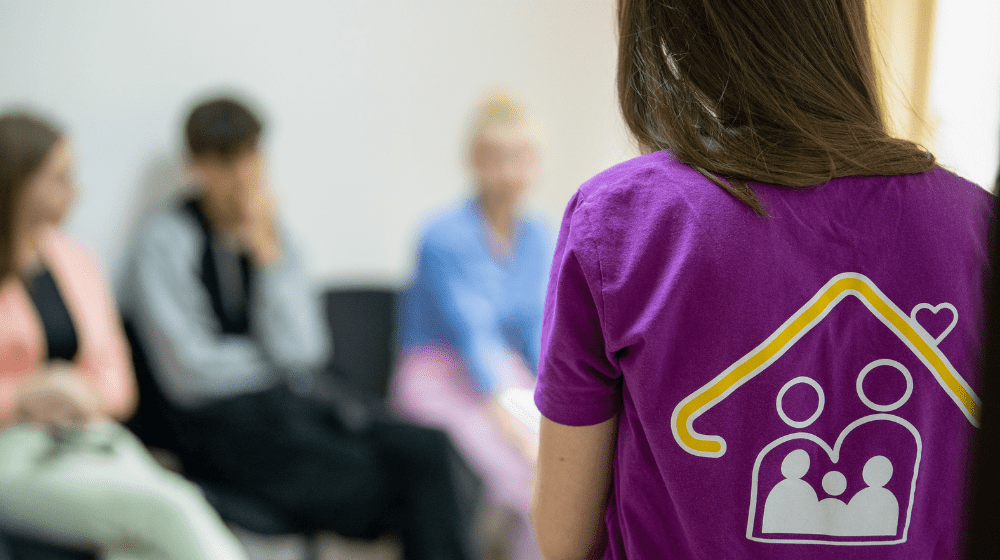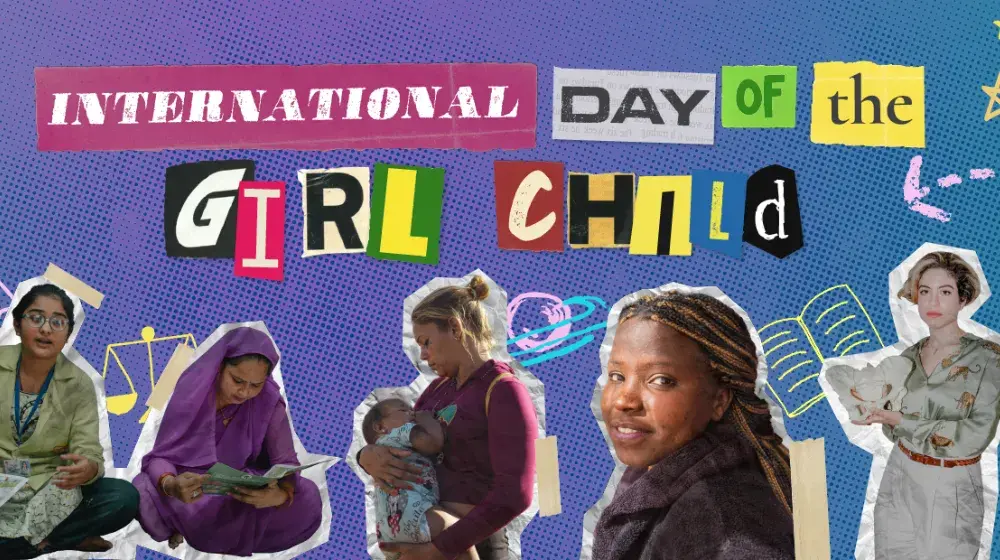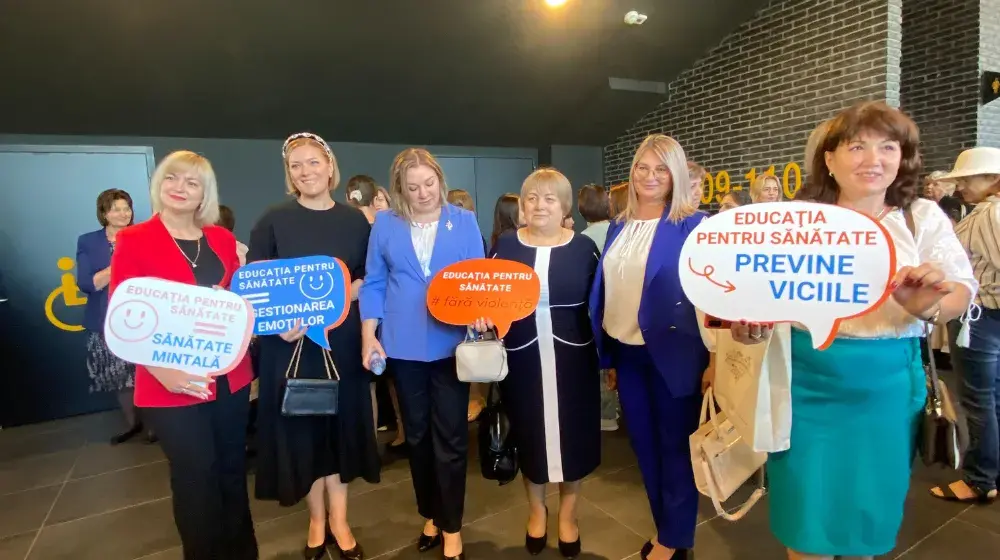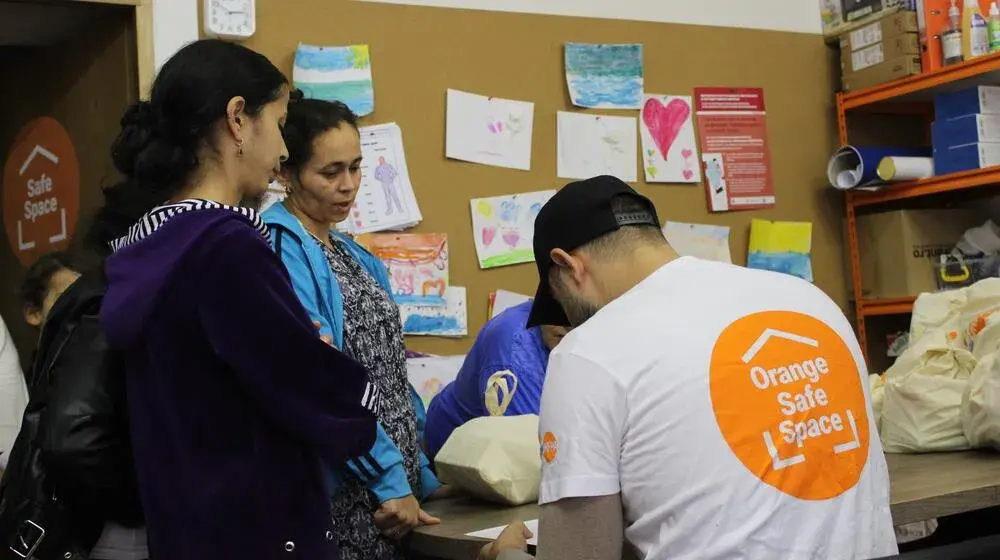Rita is one of the students who participated in the Programme on Out-of-School Reproductive Health Education for Adolescents and Young People, conducted by the Moldova Project Association, with the support of the Global Program of the United Nations Population Fund (UNFPA). The project aims to inform rural adolescents, especially from socially vulnerable groups, about safe, non-violent, and harmonious behaviours based on consent, communication and healthy relationships.
Rita’s testimonies
Rita waits for her marks at the secondary school exams in her village. She has great emotions, because she wants to get a state-funded place at the Pedagogical College in Chișinău. Since about the age of 7, her favourite game is playing teacher and the worthiest pupil is her little sister. However, until she sees her dream come true, Rita actively participates in all activities for local children. She was very happy to be invited to a series of trainings on reproductive health and healthy lifestyle. “I thought that teachers, and trainers from Chișinău would come. And that’s how it was”, a slightly embarrassed girl confessed to us. We asked her why she was embarrassed and she told us that these three days of training were interesting and very special. All the colleagues present giggled and laughed. Everyone enjoyed participating in games and group discussions.
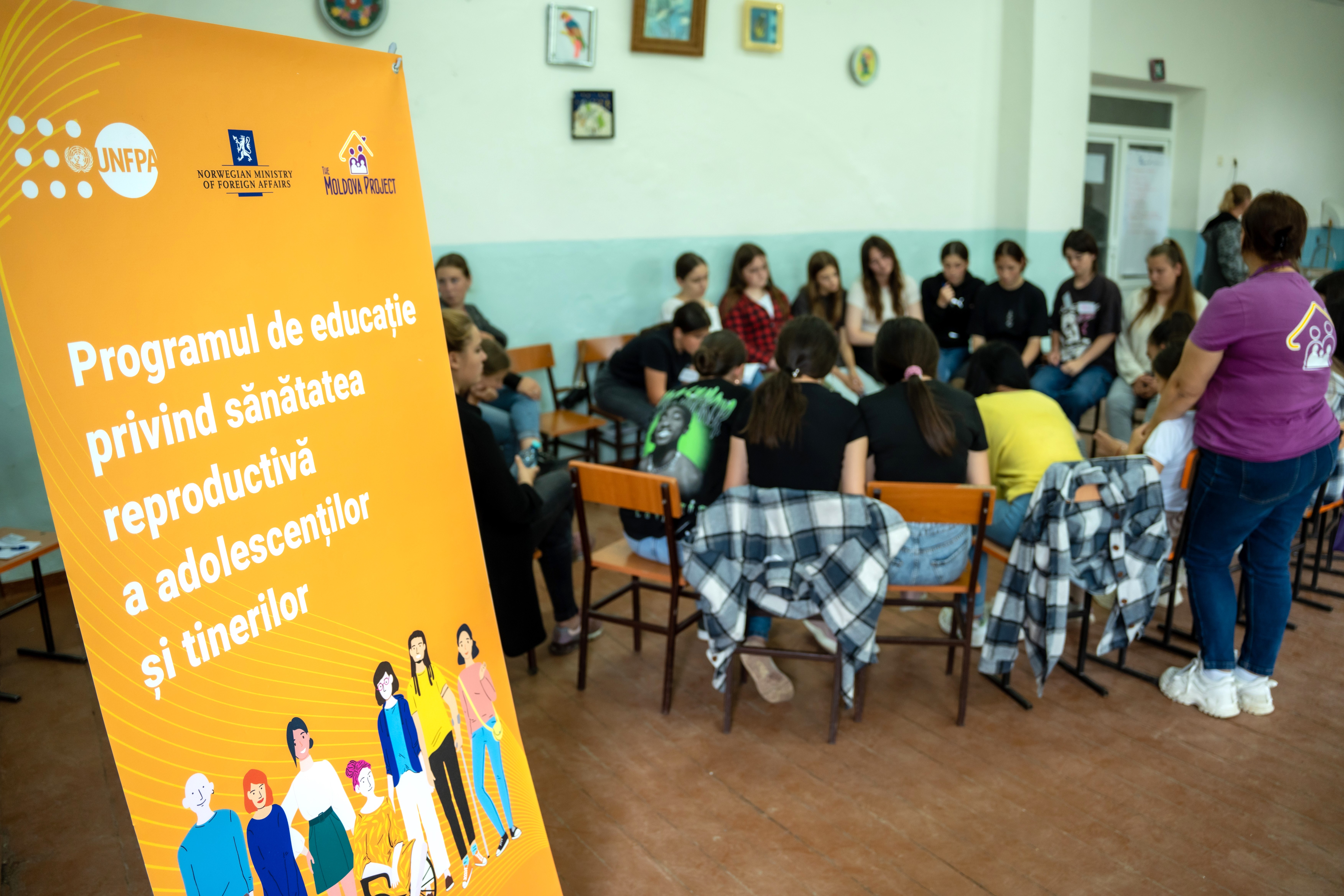
“You know, Satoshi has a song, saying that nobody teaches us to love. In fact, this is true. We feel embarrassed even among friends and we don’t want to talk openly about things we are interested in, what we think about”, Rita told us.
From the very beginning, she was pleasantly surprised by the smile of the trainers, how they invited the children to sit down, and how they spoke to them respectfully and simply, without an authoritarian tone. There were many teaching materials in the room, various posters, models and a projector. In the corner of the room, there was a table with fruit and biscuits. After a short refresher and group cohesion and presentation exercises, the training started.
“We filled in a questionnaire, a kind of assessment of our knowledge. It wasn’t difficult, but some colleagues copied from me anyway (smiles). Then, I didn’t even realise when I became part of a working group. Together with several colleagues, boys and girls, we described sexuality and different types of behaviour. It was very interesting to hear my classmates’ opinions and I found out more about the boys...” and Rita again looked at us shyly. “I believe that respect and love are the most important, and I wrote that on the poster. Neither man nor woman should dominate or be more authoritative. I would like this principle to be observed in my family – maybe, I’ll get married by the age of 24”. This time, Rita’s smile was wide and confident.
More than 30 pupils attended each of the three days of training in the festivities hall of the village school. Some of them were Rita’s friends, others were just classmates, but there were many pupils from higher or lower grades, whose names she didn't even know. However, age didn’t matter anymore during study hours, for Rita everyone was just boys and girls, smart and passive, active, with or without attitude. The discussion on children’s and human rights in general focused on consent, forms of abuse and coercion, types of violence, the power to say NO and the desire to say YES, and various dangers present in the life of an adolescent.
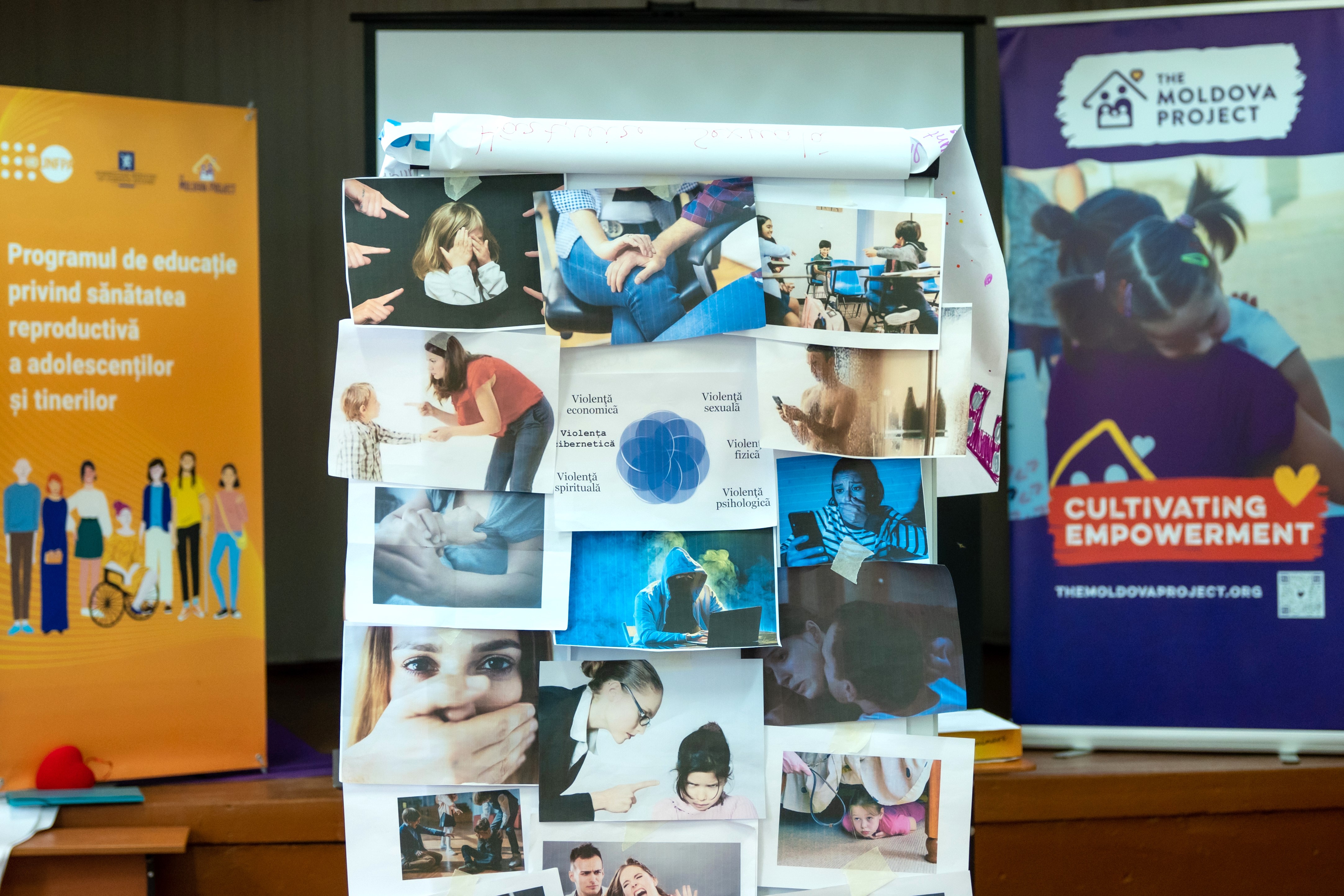
“I learned a lot of things that I sometimes thought about, especially when watching movies with fights or other forms of violence. During the training, we found answers to specific questions, we analysed specific cases that may occur in real life. I also liked the discussion about personal hygiene a lot, how to protect ourselves from diseases, and infections, and how to take care of our body. I was all eyes and ears to the stories about menstruation and women’s bodies. I learned important things, but I didn’t discuss them with anyone. My mom knows something... But I don’t talk to her much, I mostly read. Now I know what to do, where to apply, what to do in certain situations. I will never be embarrassed about menstruating again and I will take care in advance of everything I need to feel comfortable and well", Rita told us.
What are love, friendship, and values? Adolescents answered a lot of questions they didn’t have the courage to answer earlier on their own. Rita believes that these three days of training will not be soon forgotten, as they produced waves of emotions and many thoughts. Everyone present was challenged to surpass themselves, to be true to themselves and to be open to discover new things about themselves and others. At the same time, each pupil named at least five trusted people they would turn to if they were in danger.
Rita was amazed when she noticed her name written on her colleague's piece of paper: “A friend listed me as one of her five most trusted people. It was very pleasant, although I don’t know if I would be able to protect her from a powerful attacker, but I certainly know how and where to seek help. You know, we neither learn all this detailed information about dangers, diseases, relationships, our rights during our school lessons, nor our parents talk to us at home. We don't discuss sensitive topics with our, friends. I believe that we must know more so that we can act correctly when needed. We must know what decisions are right and what to choose for our body and soul.”
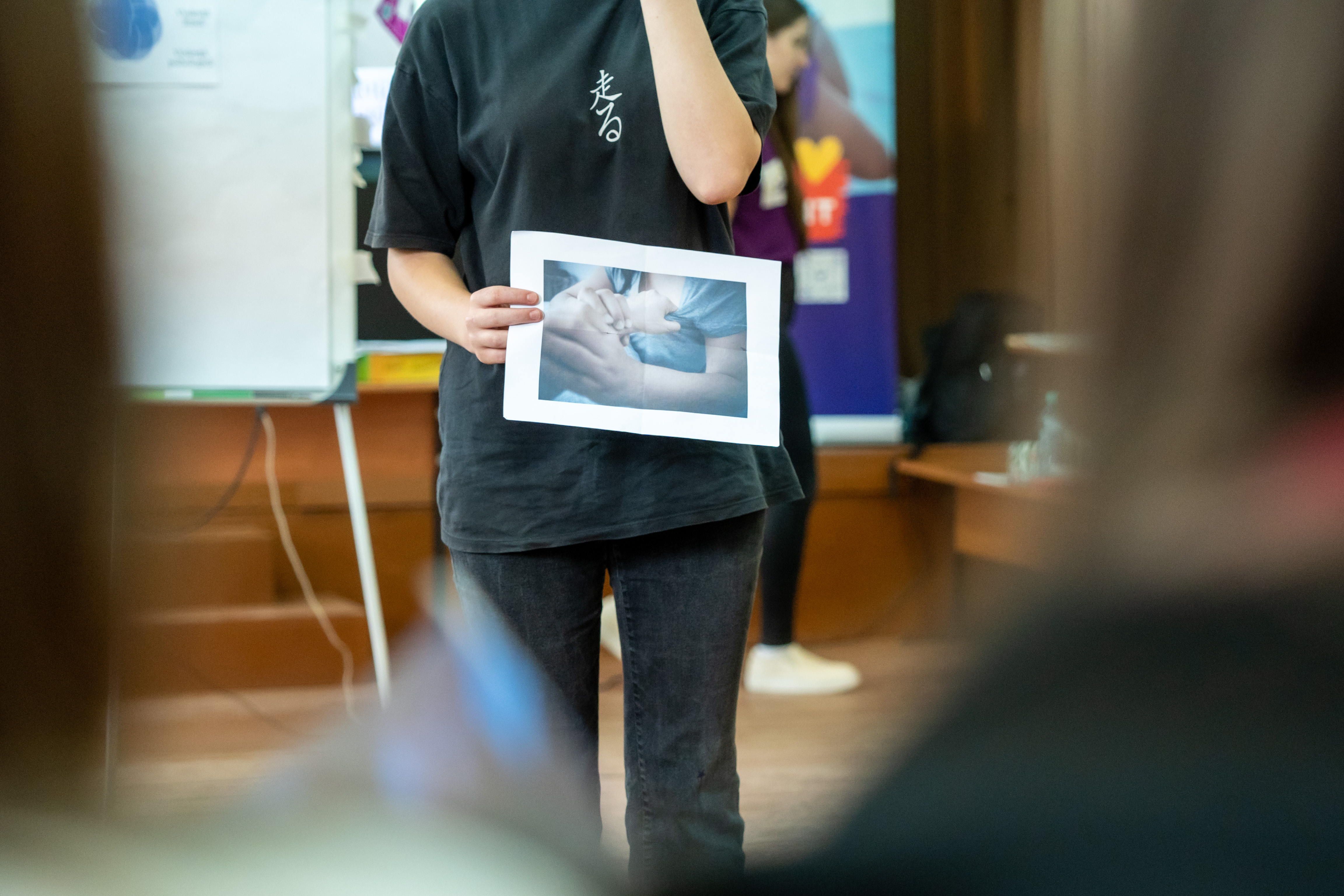
Freedom to make decisions, respect, values, verticality, and, finally, correct information were at the core of discussions during the training. Rita and about two hundred other adolescents had a special opportunity to look behind the curtain, to discover the core of many processes and phenomena that affect their lives today and are overwhelmingly important for their adult lives.
This reproductive health education project is part of the United Nations Population Fund (UNFPA) Global Program for Comprehensive Reproductive Health Education for Adolescents and Youth and is implemented with the financial support of the Government of Norway.

